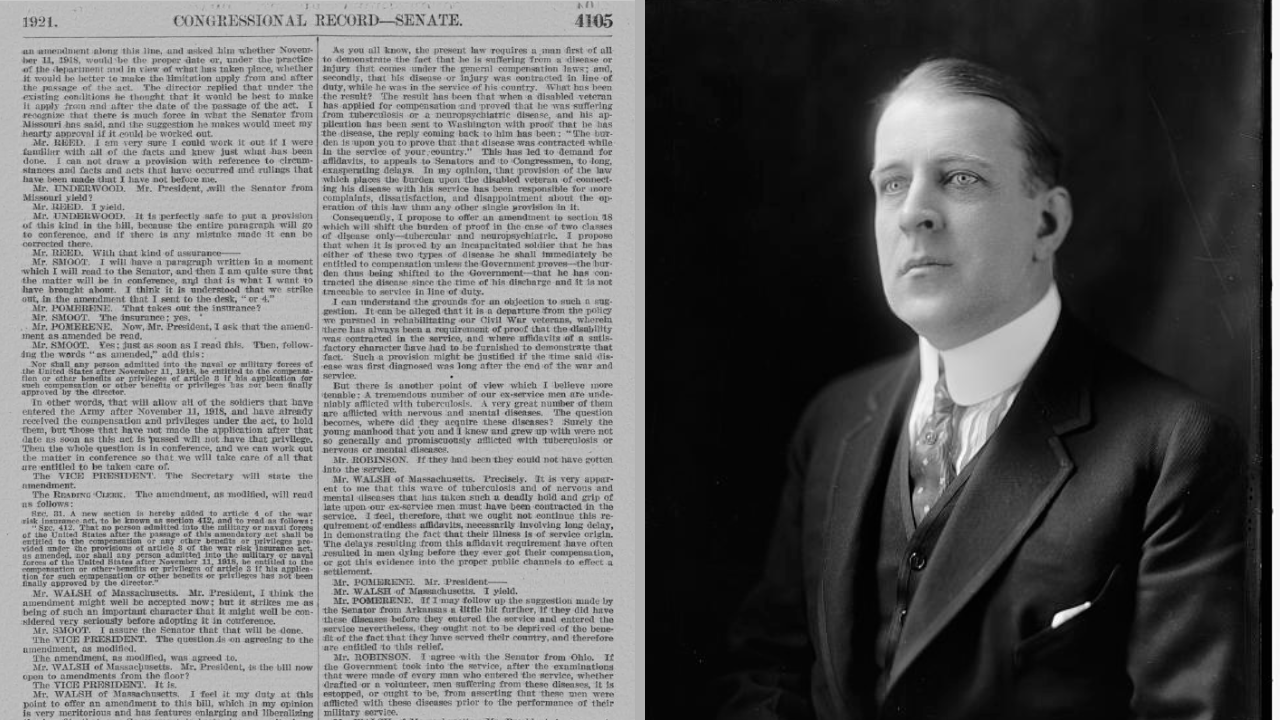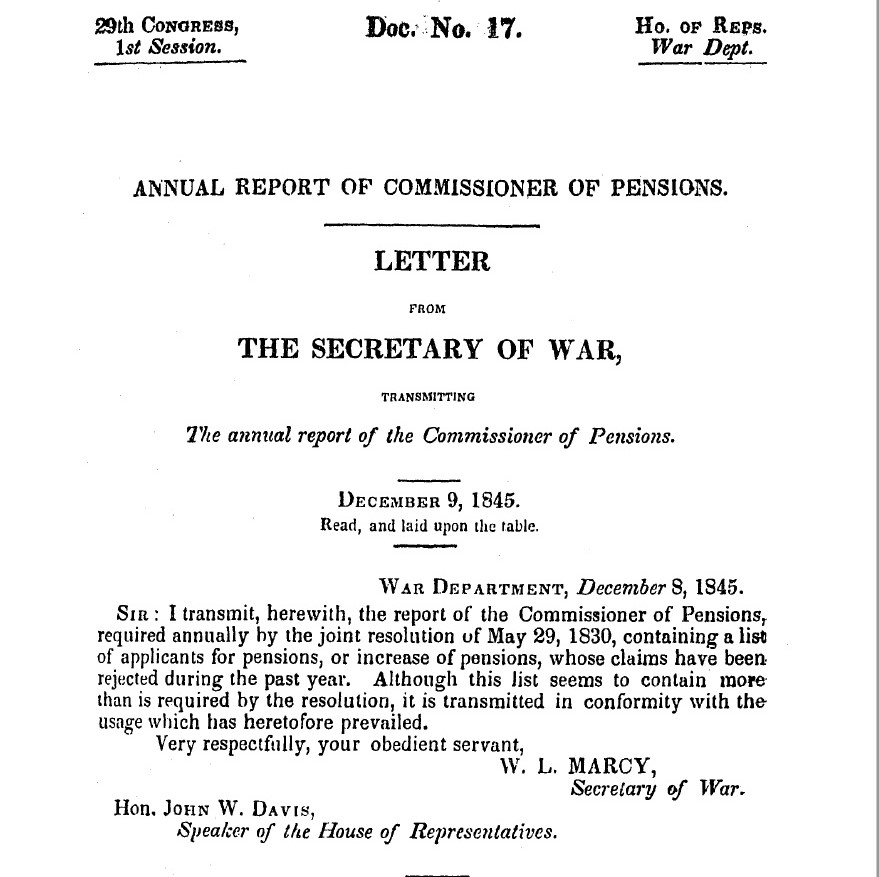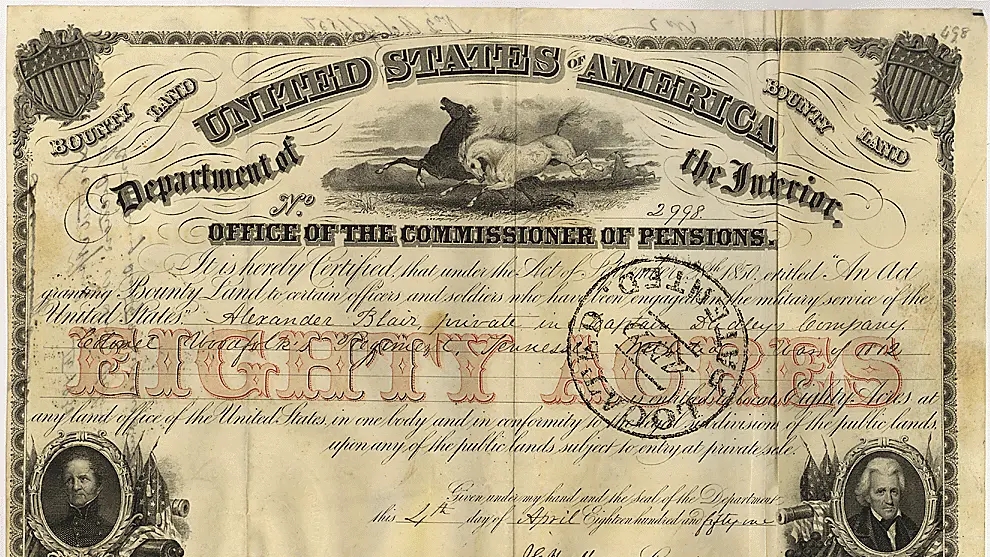History of VA in 100 Objects
After World War I, claims for disability from discharged soldiers poured into the offices of the Bureau of War Risk Insurance, the federal agency responsible for evaluating them. By mid-1921, the bureau had awarded some amount of compensation to 337,000 Veterans. But another 258,000 had been denied benefits. Some of the men turned away were suffering from tuberculosis or neuropsychiatric disorders. These Veterans were often rebuffed not because bureau officials doubted the validity or seriousness of their ailments, but for a different reason: they could not prove their conditions were service connected.
Due to the delayed nature of the diseases, which could appear after service was completed, Massachusetts Senator David Walsh and VSOs pursued legislation to assist Veterans with their claims. Eventually this led to the first presumptive conditions for Veteran benefits.
History of VA in 100 Objects
In 1832, the federal government found itself with a pension problem largely of its own making. In June, Congress passed a law granting a pension to all surviving Revolutionary War Veterans who had served for at least six months, but the increased applications overwhelmed the staff handling claims. A Commissioner of Pensions was then appointed to address the issues.
History of VA in 100 Objects
More than 15,000 Revolutionary War Veterans qualified for a pension. Veteran Joseph Winter was one of the unlucky few who did not. Winter lived in a settlement near Bethlehem, Pennsylvania before the war, where he supported his family as a weaver. As he grew older, his vision deteriorated and he could no longer perform the work required by his chosen trade. With no pension, Winter became homeless.
History of VA in 100 Objects
For a nation with limited financial resources, bounty land warrants were an appealing tool to encourage military enlistments. The promise of free 160 acres was the country's second benefit authorized for Veterans. However, the measure had devastating effect on the Indian nations that were dispossessed from the land.







